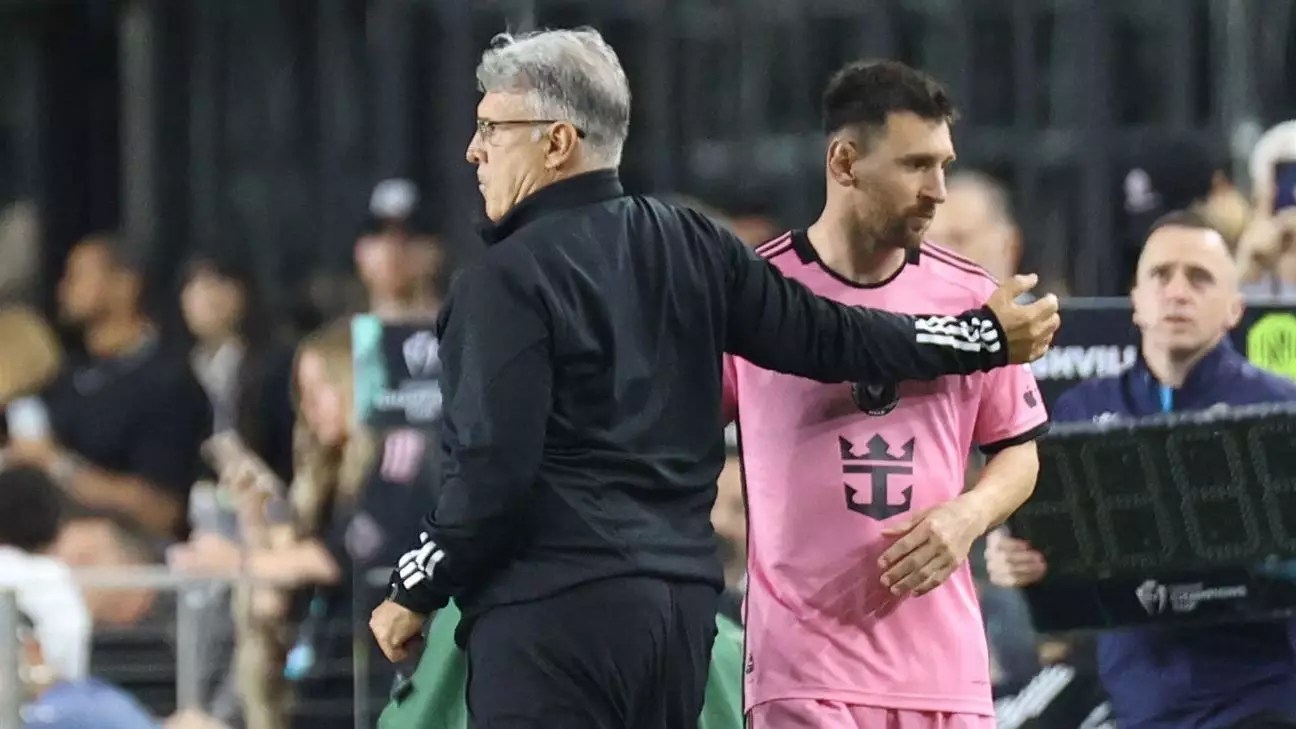Inter Miami boss Gerardo “Tata” Martino recently revealed that a request from the New York Red Bulls to postpone their upcoming match due to key players being away on international duty was rejected by MLS. This decision has stirred up a debate within the league about the challenges teams face when dealing with player absences during FIFA international windows. Unlike other top leagues, MLS opts to continue with matches during these periods, leading to teams missing out on some of their best players.
For the clash between the Red Bulls and Miami, both teams will be without six players who have been called up by their national teams. This includes prominent names like Miami midfielder Diego Gómez and Red Bulls’ captain Emil Forsberg. The absence of these key players raises concerns about the competitive balance of the teams and the impact it can have on the outcome of matches.
Martino expressed his disappointment with the decision not to postpone the match, highlighting the advantages that some teams gain when their international players are available. He emphasized the challenges of facing opponents without key players and suggested that the league needs to address this issue moving forward. The frustration of teams dealing with absences due to international duty is a recurring theme in MLS and has prompted discussions about potential solutions.
In addition to the absence of players like Lionel Messi, who suffered a hamstring injury while on international duty, teams are struggling to field their strongest lineups during these periods. The lack of availability of star players can significantly affect a team’s performance and competitiveness in crucial matches. The debate on whether matches should be postponed to accommodate international duty has become more prevalent as the issue persists.
While some argue that postponing matches would alleviate the burden on teams missing key players, others believe that it is essential to maintain the league schedule and uphold the competitive integrity of the competition. Balancing the interests of clubs, players, and the league is a complex task that requires careful consideration of all factors involved. As MLS continues to evolve, finding a middle ground that satisfies all parties involved may be the key to resolving this ongoing debate.
As teams grapple with the challenges of managing player absences during international windows, the debate around postponing matches is likely to intensify. The growing number of players called up for national team duty underscores the need for a comprehensive strategy to address this issue effectively. Whether MLS will reconsider its stance on postponing matches or implement alternative solutions remains to be seen. In the meantime, teams will need to adapt to the reality of competing without some of their top talent and find ways to remain competitive despite the challenges they face.


Leave a Reply